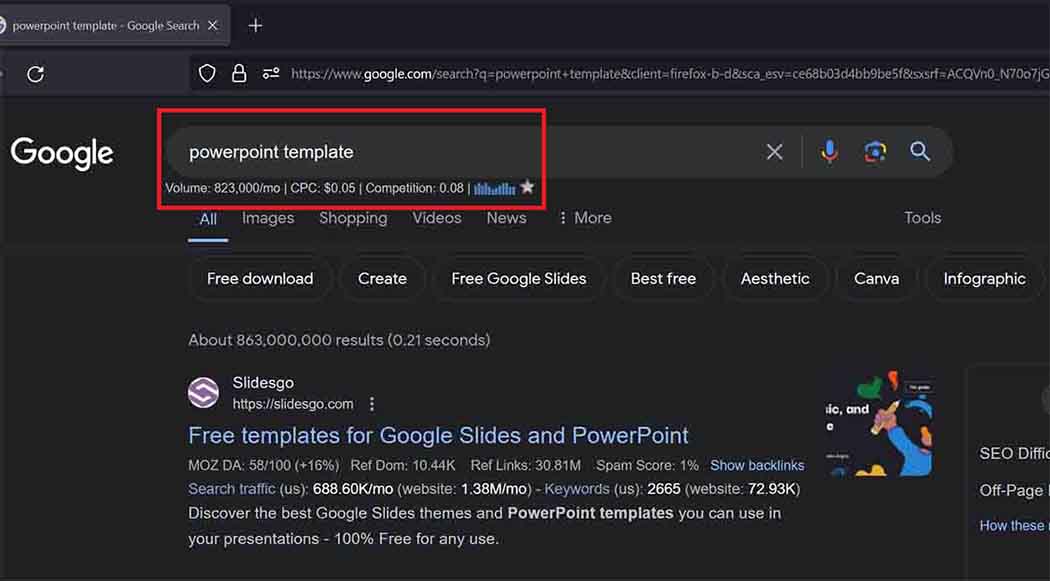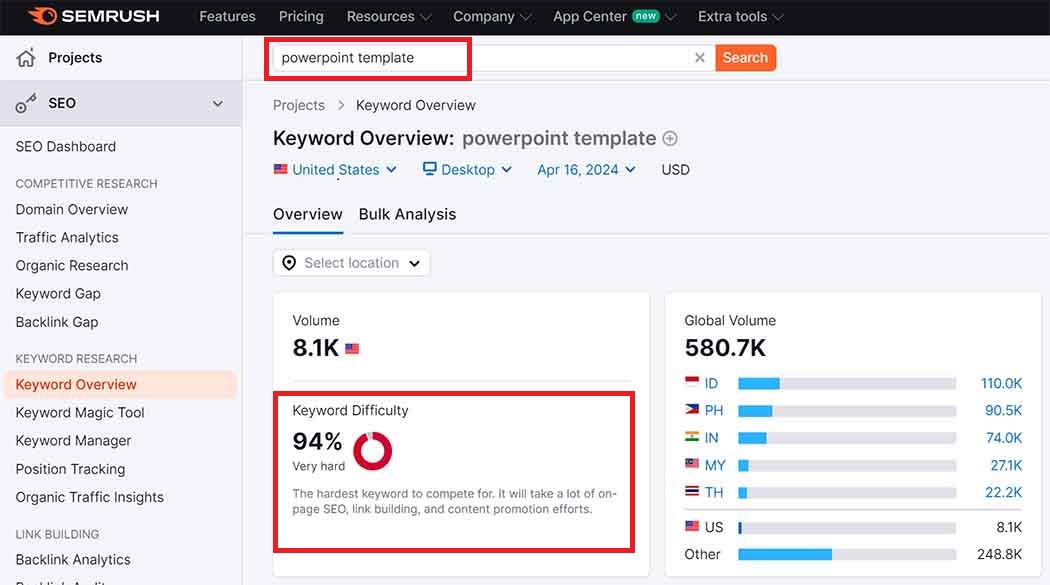A successful SEO strategy requires keyword research. Identifying your target audience’s keywords lets you optimize your website and content for organic traffic.
Keyword research is crucial for increasing organic traffic and search engine visibility. You may attract the ideal visitors to your website by targeting keywords.
Here we will explain keyword research and offer suggestions and tools to help you locate the best keywords for your website.
This tutorial will help you increase your search engine rankings, whether you’re new to SEO or looking to improve your keyword strategy.
What are SEO keywords?
SEO keywords are terms and phrases used to create web content. They are words that potential customers type into the search bar to describe the goods or services. Marketers may rank and suggest websites by carefully choosing keywords that tell search engines about their content.
Keywords show your audience’s desires and motivations. For SEO or general marketing, using the right keywords in your writing can boost your business. The idea is to match client terms with webpage keywords.
Why is keyword research important?
Businesses and website owners need keyword research to know what their target audience searches for online. Businesses may optimize website content, boost search engine results, and increase organic traffic by identifying relevant keywords.
It helps firms understand customer intent and preferences to personalise marketing strategies and content for their audience. Keyword research boosts website visibility and traffic.
Best Tools for SEO Keyword Research and Analysis
The correct SEO keyword research and analysis tools can make all the difference. Combining free and paid SEO keyword research tools can reveal keyword popularity, competition, and possibilities.
Google Ads: Google Keyword Planner provides keyword search volume and competitiveness information.
SEMrush: SEMrush provides keyword statistics and competitive analysis.
Ahrefs: For detailed keyword data and competitor analysis, Ahrefs is recommended.
Moz: Moz Keyword Explorer offers keyword ideas and SERP analysis. You can use these top tools to gather data to improve your SEO strategy and search engine exposure.
These tools help users understand keyword trends and competition, which inform SEO and content optimisation methods.
Understanding SEO Keywords
SEO keywords are essential for website visibility and SERP ranking. Businesses can attract their target audience by understanding user intent and using relevant keywords in high-quality content.
SEO keyword research requires continual monitoring of trends, competition, and search engine algorithm updates. This ongoing work helps businesses adapt their keyword strategies to compete in the ever-changing digital market and increase organic traffic to their websites.
How to identify target keywords
To kickstart your SEO keyword research, brainstorm a variety of business or service subjects. This can provide keyword suggestions and lay the groundwork for a comprehensive plan.
Gathering search volume, competition, and opportunities requires robust keyword research tools like Google Keyword Planner, SEMrush, or Ahrefs.
Analysing competitor websites and industry magazines helps you identify keywords that drive traffic to similar businesses in your sector.
Customer feedback, surveys, and social media listening tools can reveal your target audience’s linguistic patterns, helping you find relevant themes and refine your keyword approach.
Understanding keyword difficulty
Analysing search traffic, competitiveness, and top-ranking pages helps determine keyword difficulty.
It also involves assessing the on-page optimisation and domain authority needed to rank for a term.
Analysing SERP elements and major players in search results helps determine keyword complexity.
Long-Tail Keywords and User Intent
Long-tail keywords are crucial for targeted, high-converting website visitors. Longer, more detailed keyword phrases match user intent, making them crucial to any keyword strategy.
Understanding user intent and creating content that meets their needs might help you optimize for long-tail keywords and boost conversion rates.
Long-tail keywords have less competition, making it easier to rank higher and increase your content’s visibility and effect in search results.
Matching keywords with user search intent
Understanding search query reasons is essential to matching keyword research to user search intent. Analysing user search context lets you tailor content to their informational, navigational, and transactional demands.
Google Trends can reveal search behaviour patterns, helping terms match user intent. This strategic alignment improves user engagement and happiness by offering content that fulfils their expectations.
FAQs
Q. What is SEO keyword research?
SEO keyword research identifies and analyses search terms and phrases used to find relevant content.
Q. Why is keyword research important for SEO?
Keyword research helps you understand your target audience’s language and phrases to personalise your content to their demands.
Q. How can I analyse the competitiveness of keywords?
Google Keyword Planner and SEMrush can help you assess keyword competitiveness by assessing search volume and competition.
Q. What tools can I use for SEO keyword research and analysis?
- Google Keyword Planner
- Ahrefs
- SEMrush
Finally, SEO keyword research and analysis are essential to digital marketing success. Businesses can find target keywords and obtain a competitive edge by understanding keyword research and using the finest tools.
Understanding keyword competitiveness, difficulty, and competitor keyword tactics informs strategic decision-making.
Long-tail keywords that match user intent can also generate targeted, high-converting traffic to websites, improving visibility, engagement, and business success.
Businesses must invest time and resources in keyword research and analysis to stay ahead in the ever-changing digital market.


